《经济学家》2013年最佳图书

《经济学家》2013年最佳图书
参考:《经济学家》年度最佳图书: 2011 ; 2012 ; 2014 ; 2015 ; 2016 ; 2017 ; 2018 。
分为政治、传记、历史、经济、科技、文化、小说七类:
Politics and current affairs
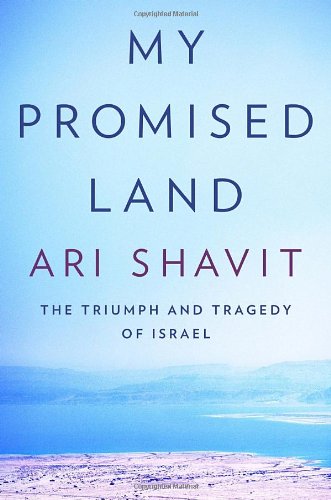
My Promised Land: The Triumph and Tragedy of Israel
. By Ari Shavit. Spiegel & Grau; 464 pages; $28. To be published in Britain by Scribe in February; £20.
Drawing on interviews, historical documents, diaries and letters, as well as his own family story, Ari Shavit, a Tel Aviv newspaper columnist mines four generations of history to tease out the conflicts and contradictions in his controversial homeland. A passionate elegy.
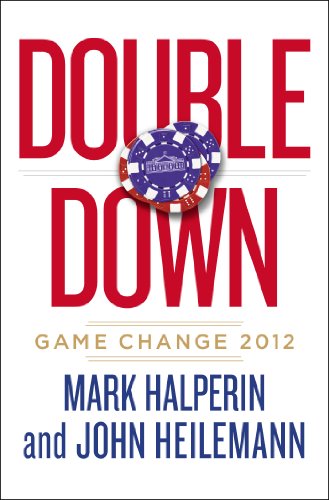
Double Down: Game Change 2012
. By Mark Halperin and John Heilemann. Penguin Press; 499 pages; $29.95. W.H. Allen; £20.
A gripping account, drawing on interviews with 400 sources, of Barack Obama’s win over his 2012 Republican rival, Mitt Romney. A sequel to “Game Change”, their book on the 2008 election, it cements the authors’ reputation as unrivalled chroniclers of American campaign politics.
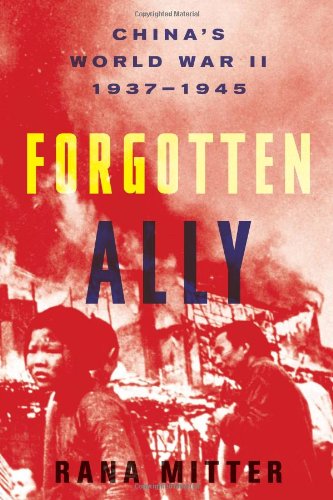
Forgotten Ally: China’s World War II, 1937-45
. By Rana Mitter. Houghton Mifflin Harcourt; 458 pages; $30. Allen Lane; £25.
Japan’s brutal occupation and the struggle against it was the anvil on which modern China was shaped. A meticulous exploration of China’s experience of war and the existential crisis it suffered as it tried to regain its centrality in Asia.
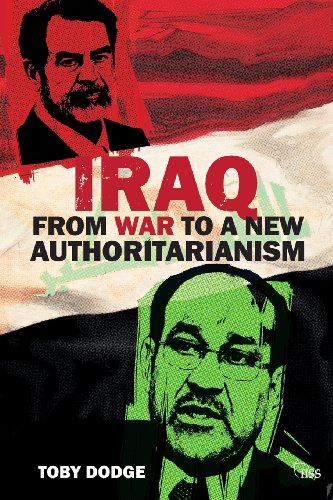
Iraq: From War to a New Authoritarianism
. By Toby Dodge. Routledge; 216 pages; $26.95 and £14.99.
Toby Dodge, director of the Middle East Centre at the London School of Economics, offers a clear, concise and unsparing view of Iraq’s continuing agony. A tale worthy of Shakespeare.
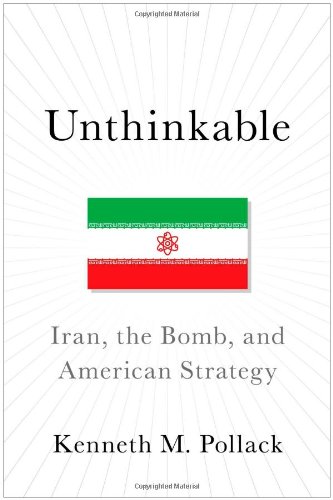
Unthinkable: Iran, the Bomb and American Strategy
. By Kenneth Pollack. Simon & Schuster; 536 pages; $30.
A hawkish analyst sets out what military action against Iran might look like and goes on to show why America would be mad not to endorse Barack Obama’s strategy of containment.
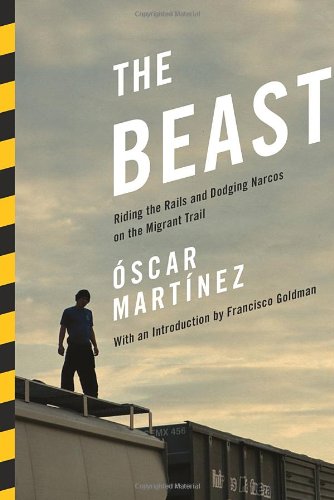
The Beast: Riding the Rails and Dodging Narcos on the Migrant Trail
. By Oscar Martínez. Translated by Daniela Maria Ugaz and John Washington. Verso; 267 pages; $26.95 and £14.99.
Drawing on eight trips accompanying illegal migrants from Central America across the border into the United States. Oscar Martínez, a Salvadoran journalist, does a beautiful job describing a world that is hellish, violent and depraved.
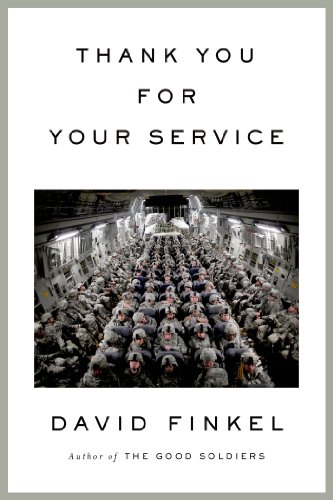
Thank You For Your Service
. By David Finkel. FSG; 272 pages; $26. Scribe; £16.99.
An exploration of the lives of American soldiers returning from combat, many of them physically fit but psychologically wounded. An important and uncomfortable book by the Pulitzer-prize-winning author of “The Good Soldiers”.
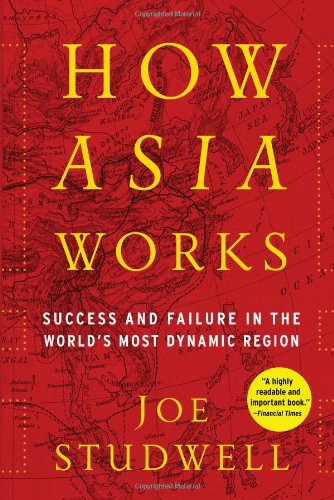
How Asia Works: Success and Failure in the World’s Most Dynamic Region
. By Joe Studwell. Grove; 366 pages; $27. Profile; £14.99.
Asia’s post-war boom was fed by three ingredients: land reform, export-led state-backed manufacturing and compulsory bank subsidies for industry. A clever and controversial analysis with 68 pages of footnotes from the author’s trove of reading and reporting.
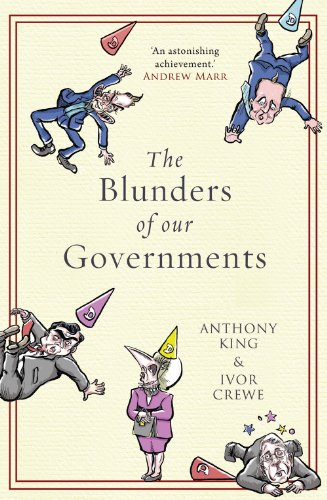
The Blunders of Our Governments
. By Anthony King and Ivor Crewe. Oneworld; 470 pages; £25.
If Britain’s politicians are among the world’s most honest, hardworking and well-meaning, why do they mess up so badly and so often? A trenchant book that will make you see red, even as you laugh.
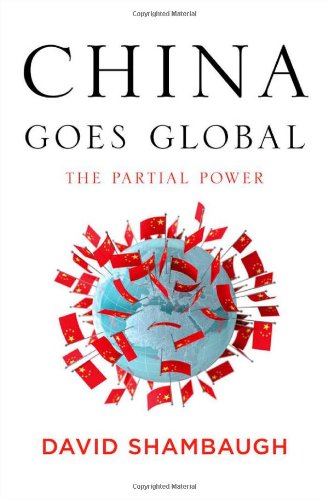
China Goes Global: The Partial Power
. By David Shambaugh. Oxford University Press; 409 pages; $29.95 and £20.
China’s footprint is “broad, but not deep”, argues David Shambaugh of George Washington University, which means it is not nearly as powerful as people think. As one of the few recent books that says China is not going to take over the world, this work is a welcome antidote to some of the widespread hyperventilating about China’s rise. Scholarly, fascinating and controversial.
Biography and memoir
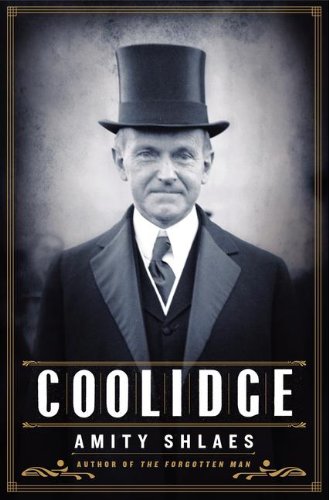
Coolidge
. By Amity Shlaes. Harper; 560 pages; $35.
America’s 30th president, Calvin Coolidge, was said to have been weaned on a pickle. Amity Shlaes, a fine historian of the Depression, argues that Coolidge has been much misunderstood. Her book deserves to be widely read.
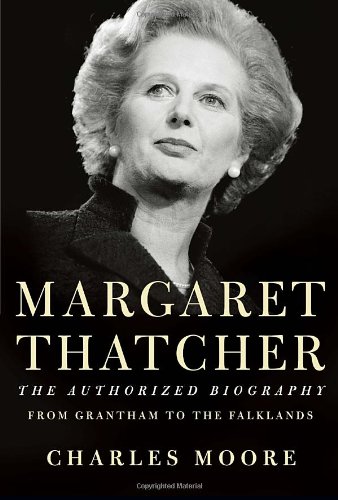
Margaret Thatcher—The Authorised Biography, Volume I: From Grantham to the Falklands
. By Charles Moore. Knopf; 896 pages; $35. Allen Lane; £30.
A masterful account of how she came, she saw and she conquered. This first part of Margaret Thatcher’s authorised biography, by a former editor of the Daily Telegraph, sets a high standard for the volumes that will follow.
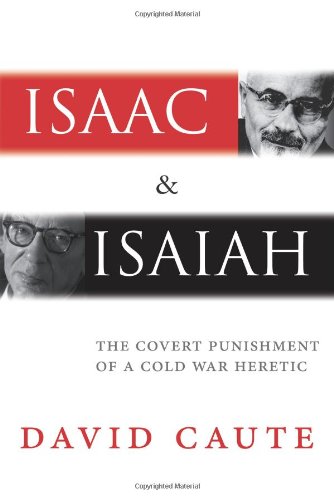
Isaac and Isaiah: The Covert Punishment of a Cold War Heretic
. By David Caute. Yale University Press; 336 pages; $35 and £25.
What could have been a minor academic squabble is transformed here into a wide-ranging discussion of some of the major ideological disputes of the 20th century—Marxism, Zionism, liberalism and the significance of the Russian revolution. The author is a well-known British novelist, playwright and historian.
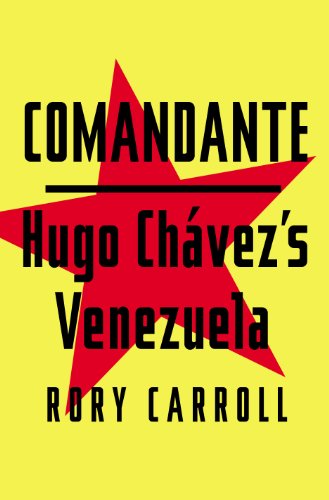
Comandante: Hugo Chávez’s Venezuela
. By Rory Carroll. Penguin Press; 320 pages; $27.95. Canongate Books; £20.
A stimulating biography of a great showman (and bad president), who came to power in 1999 and died earlier this year. A fine, stately book full of telling detail and published with impeccable timing, by a British journalist based in Los Angeles.
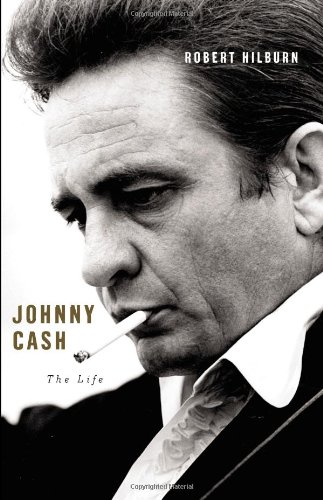
Johnny Cash: The Life
. By Robert Hilburn. Little, Brown; 679 pages; $32. Weidenfeld & Nicolson; £20.
Johnny Cash was a serviceable guitarist with a limited vocal range. But he found a way to turn his detriments into advantages, and by the time he died, a decade ago, he was adored by millions. This is the definitive biography of an American original, a poor Arkansas boy who struggled with women and drugs, and became a bestselling singer and songwriter.
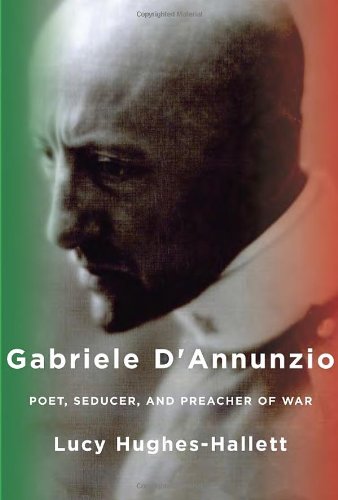
Gabriele d’Annunzio: Poet, Seducer and Preacher of War
. By Lucy Hughes-Hallett. Knopf; 608 pages; $35. Fourth Estate; £25.
An elegant life of the ultimate aesthete and Übermensch, Gabriele d’Annunzio, a controversial writer, fascist and evangelist of war. A deserving winner of the 2013 Samuel Johnson prize for non-fiction.
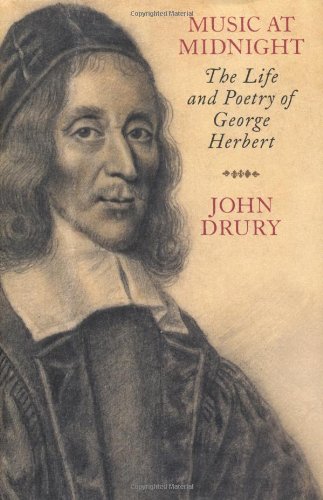
Music at Midnight: The Life and Poetry of George Herbert
. By John Drury. Allen Lane; 396 pages; £25.
To be published in America in April by University of Chicago Press; $35 Being an English country minister has inspired many writers, none of them more lapidary, precise, witty and surprising than George Herbert, the frail intellectual who preached to the parish of Bemerton from 1630 to 1633. An account of an Anglican priest and his poetry that will probably never be bettered.
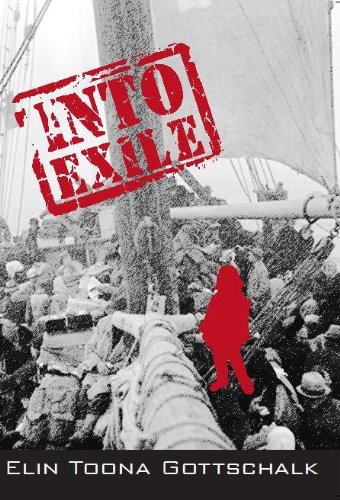
Into Exile: A Life Story of War and Peace
. By Elin Toona Gottschalk. Lakeshore Press; 370 pages; $29.
The poignant autobiography of an Estonian schoolgirl whose childhood was marred by war and family breakdown. She moves from her occupied homeland through the ruins of Germany to the grim, snobbish world of austerity Britain.
History
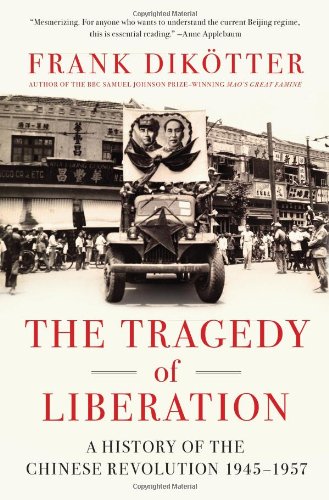
The Tragedy of Liberation: A History of the Chinese Revolution, 1945-57
. By Frank Dikotter. Bloomsbury; 400 pages; $30 and £25.
An elegant history that lays bare the violent heart of Mao’s revolution. Using new research from party archives, Frank Dikotter shows in detail how 2m Chinese were murdered. By the author of “Mao’s Great Famine”.
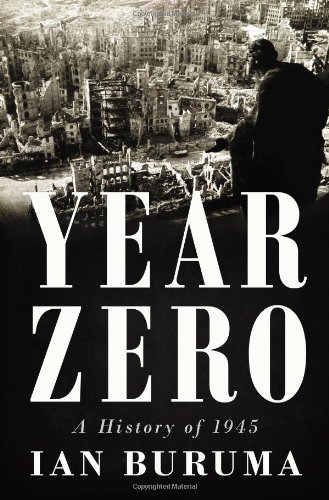
Year Zero: A History of 1945
. By Ian Buruma. Penguin Press; 368 pages; $29.95. Atlantic Books; £25.
The New York-based Dutch historian chronicles the messy end of the second world war and shows how, contrary to the received wisdom, the end of hostilities often benefited the unpatriotic and the unprincipled.
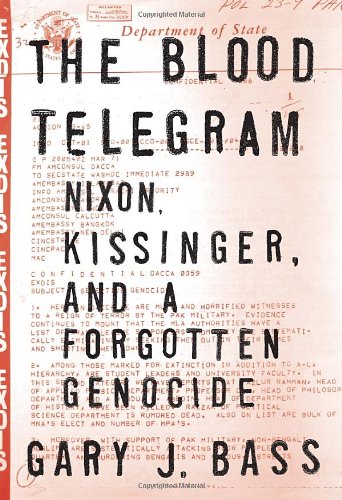
The Blood Telegram: Nixon, Kissinger and a Forgotten Genocide
. By Gary Bass. Knopf; 499 pages; $30.
A detailed assessment of the part America played in the split between Pakistan and Bangladesh. Gary Bass, who once wrote for The Economist, describes in detail how Henry Kissinger and Richard Nixon ignored the advice of their diplomats on the ground, and casts fresh light on a shameful moment in American foreign policy.
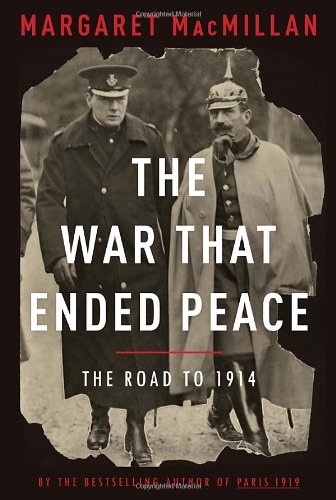
The War that Ended Peace: The Road to 1914
. By Margaret MacMillan. Random House; 739 pages; $35. Profile Books; £25.
How Europe (and the world) could have avoided the grief and ruin of war if its leaders had been wiser and more far-sighted. The centenary of the start of the first world war is generating an unprecedented wave of books. Margaret MacMillan’s is one that should not be missed.
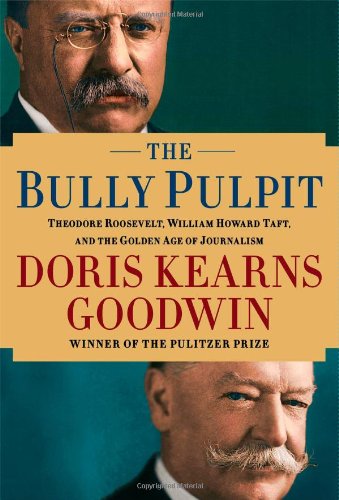
The Bully Pulpit: Theodore Roosevelt, William Howard Taft and the Golden Age of Journalism
. By Doris Kearns Goodwin. Simon & Schuster; 928 pages; $40. Viking; £20.
Theodore Roosevelt was the first president to install a press room in the White House, making journalists instantly more powerful and exacerbating tensions within his Republican Party. “The Bully Pulpit” captures the way a political party can be destroyed by factionalism, and shows the important role investigative reporters play in political life.
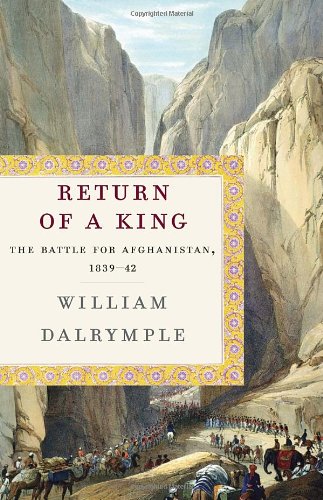
The Return of a King: The Battle for Afghanistan, 1839-42
. By William Dalrymple. Knopf; 608 pages; $30. Bloomsbury; £24.99.
An epic story of an unnecessary war, a bloody occupation and an ignominious retreat. William Dalrymple, a British historian of the great game and a master of genre, offers a salutary lesson about the dangers of meddling in Afghanistan.
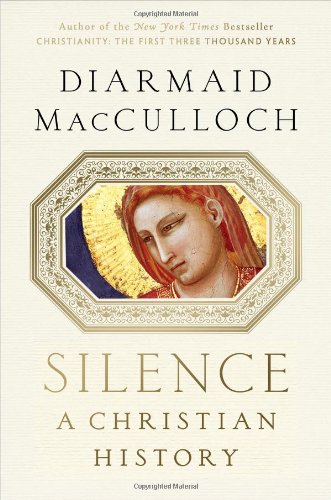
Silence: A Christian History
. By Diarmaid MacCulloch. Viking; 338 pages; $27.95. Allen Lane; £20.
An intelligent meander through Christian and Jewish history loosely held together by the theme of silence, by an Oxford historian and prolific broadcaster.
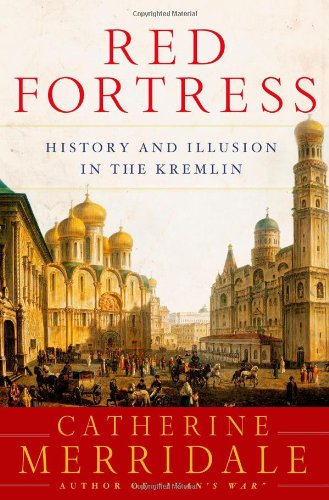
Red Fortress: History and Illusion in the Kremlin
. By Catherine Merridale. Metropolitan Books; 506 pages; $35. Allen Lane; £30.
A splendidly rich portrait of an exotic and puzzling redoubt that was built to keep foreigners out and secrets in. By a British historian with a detective’s nose and a novelist’s way with words.
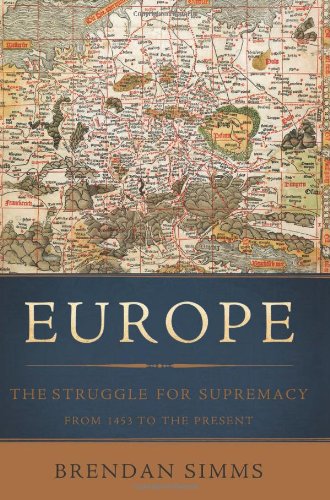
Europe: The Struggle for Supremacy, from 1453 to the Present
. By Brendan Simms. Basic Books; 690 pages; $35. Allen Lane; £30.
An original take on Europe’s history that shows that German power was a concern long before the country formally came into being in the late 19th century, and perhaps as far back as the mid-1400s. A compelling and provocative thesis that has lessons for politicians today.
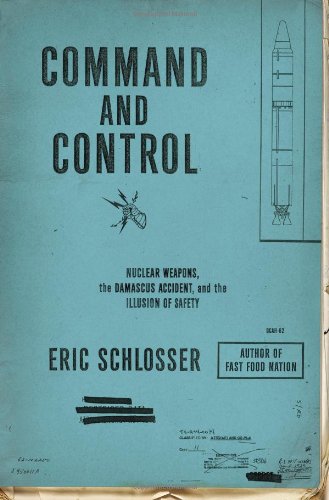
Command and Control: Nuclear Weapons, the Damascus Incident and the Illusion of Safety
. By Eric Schlosser. Penguin Press; 656 pages; $36. Allen Lane; £25.
The author of “Fast Food Nation” does for the American nuclear industry what he did for industrial food production. Drawing on meticulous research, “Command and Control” is a timely warning that unless things change, a nuclear accident may be unavoidable.

Gettysburg: The Last Invasion
. By Allen Guelzo. Knopf; 656 pages; $35.
An intimate, readable new account of the three-day battle that has already been much written about. Hugely detailed and realistic, “Gettysburg” manages to be both fascinating and fresh.
Economics and business
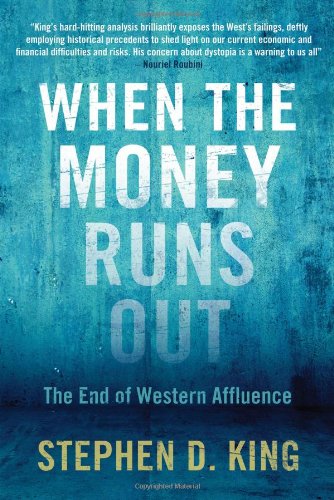
When the Money Runs Out: The End of Western Affluence
. By Stephen King. Yale University Press; 304 pages; $30 and £20.
A thoughtful and convincing assessment of what happens when the rich world becomes over-accustomed to rising standards of living but cannot afford the benefits its governments have promised, by the chief economist at HSBC. Serious scaremongering; worthy of Stephen King’s horror-writing namesake.
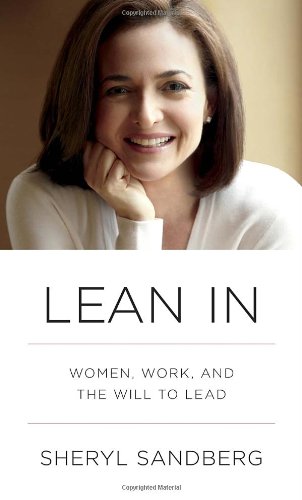
Lean In: Women, Work and the Will to Lead
. By Sheryl Sandberg with Nell Scovell. Knopf; 228 pages; $24.95. W.H. Allen; £16.99.
In a year that saw a number of books being published on women in the workplace, Sheryl Sandberg’s stands out. Facebook’s chief operating officer, the most famous woman in Silicon Valley and now the face of female corporate America, explains what needs to change for women to make it to the top.
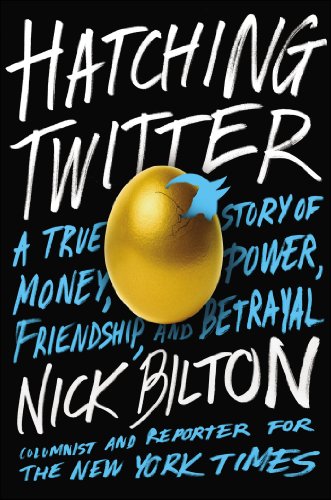
Hatching Twitter: A True Story of Money, Power, Friendship and Betrayal
. By Nick Bilton. Penguin Portfolio; 304 pages; $28.95. Sceptre; £14.99.
A made-for-the-movies account of the personal rivalries between Evan Williams and Jack Dorsey that fuelled Twitter’s epic boardroom battles before it was floated with a market cap of $25 billion. Explains why so many ambitious students are shunning Wall Street and joining obscure tech start-ups.
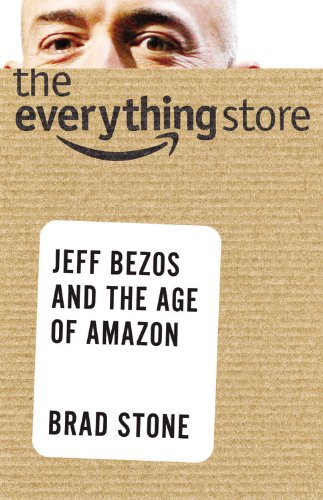
The Everything Store: Jeff Bezos and the Age of Amazon
. By Brad Stone. Little, Brown; 384 pages; $28. Bantam Press; £18.99.
This story of the transformation of a small online bookseller into an e-commerce behemoth has annoyed Amazon’s founder (and his wife, even more). Winner of the 2013 Financial Times/Goldman Sachs business book of the year award. Can’t be all bad.
Science and technology
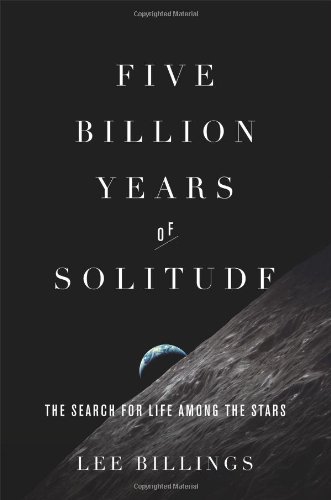
Five Billion Years of Solitude: The Search for Life Among the Stars
. By Lee Billings. Current; 294 pages; $27.95.
Astrobiology, the study of alien life, has been a dream—until now. Suddenly the detection of life on other planets no longer seems quite so peculiar. Lee Billings explains how the impossible dream became possible after all.

Smarter Than You Think: How Technology Is Changing Our Minds for the Better
. By Clive Thompson. Penguin Press; 352 pages; $27.99. William Collins; £20.
An eye-opening and optimistic analysis, by a writer for Wired, of how technology affects the way people learn, think and remember.
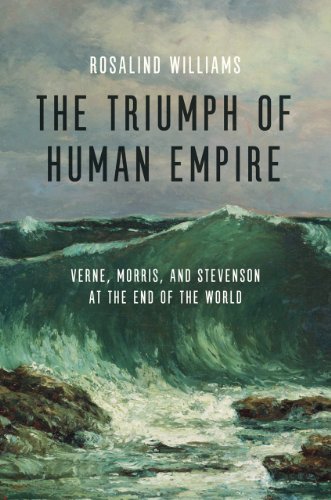
The Triumph of Human Empire: Verne, Morris and Stevenson at the End of the World
. By Rosalind Williams. University of Chicago Press; 400 pages; $30 and £21.50.
A magnificent attempt to recapture the sense, so prevalent at the end of the 19th century, that the world was finished, explored and done. The responses of the three creative men on whom Rosalind Williams focuses have strong resonances for anyone who worries about today’s Anthropocene era.
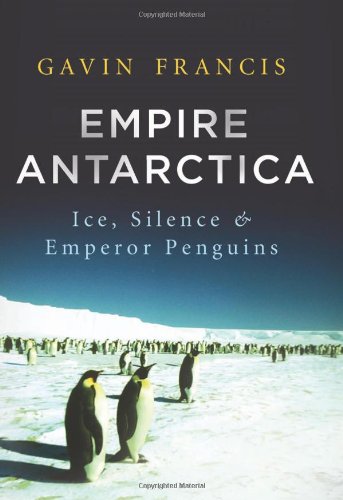
Empire Antarctica: Ice, Silence & Emperor Penguins
. By Gavin Francis. Counterpoint; 304 pages; $28. Chatto & Windus; £16.99.
A mesmerising description of a 60,000-strong emperor-penguin colony—the “great penguin jamboree”—at the end of the world, Gavin Francis’s book manages also to be an elegant and thoughtful meditation on silence. By the doctor at the British Antarctic Survey base which used to be known as Ice Station Zebra.
Culture, society and travel
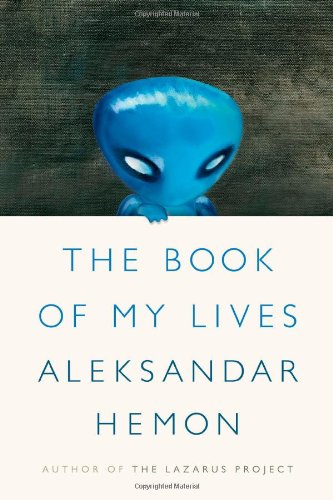
The Book of My Lives
. By Aleksandar Hemon. Farrar, Straus & Giroux; 214 pages; $25. Picador; £20.
Essays about displacement and the consolations of language by a refugee from Sarajevo. Some of them preserve a youth that will never return; others bitterly document the betrayal of those who destroyed his homeland.
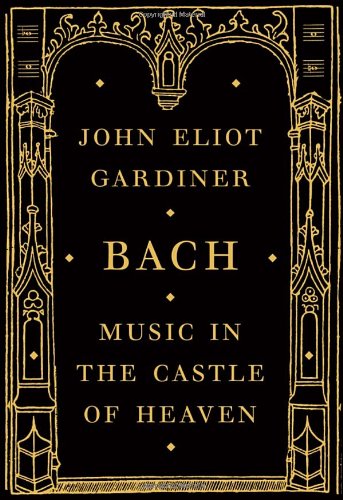
Bach: Music in the Castle of Heaven
. By John Eliot Gardiner. Knopf; 629 pages; $35. Allen Lane; £30.
Sir John Eliot Gardiner grew up under a portrait of Bach and became so entranced by him that he once conducted virtually all of Bach’s 200 cantatas in a single year. Here he explains how a very ordinary man produced such extraordinary music.
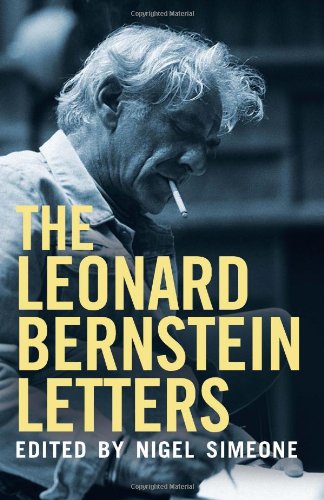
The Leonard Bernstein Letters
. Edited by Nigel Simeone. Yale University Press; 624 pages; $38 and £25.
With their intellectual brilliance, humour and wonderful eye for detail, Leonard Bernstein’s letters blow all biographies out of the water. His galaxy of correspondents includes Stephen Sondheim, Boris Pasternak and Jacqueline Kennedy. Full of fresh information and the authentic voice of a constant seeker.
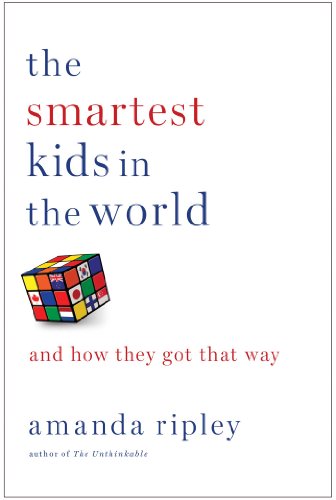
The Smartest Kids in the World: And How They Got That Way
. By Amanda Ripley. Simon & Schuster; 320 pages; $28 and £18.99.
An American journalist travels the world in search of schools that teach children how to think critically. The best ones have very little high-tech gadgetry and are staffed by teachers who are held in high professional regard. A salutary lesson for politicians and parents.
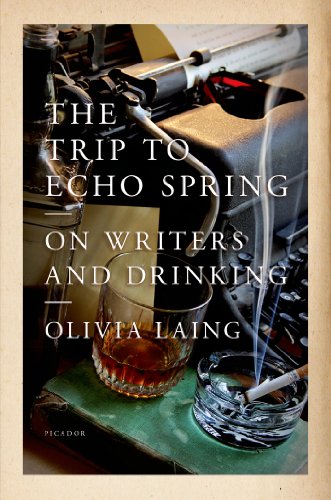
The Trip to Echo Spring: Why Writers Drink
. By Olivia Laing. Picador; 352 pages; $26. Canongate; £20.
Taking the lives of six American writers—including Ernest Hemingway, F. Scott Fitzgerald and Raymond Carver—Olivia Laing explores the role drink played in the work of these talented figures. Sobering.
FICTION
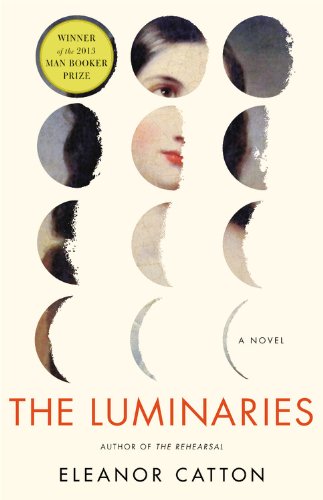
The Luminaries: A Novel
. By Eleanor Catton. Little, Brown; 848 pages; $27. Granta; £18.99.
The longest winner of the Man Booker prize—by its youngest author, a 28-year-old New Zealander. A 19th-century murder mystery stretched out on a postmodern canvas, “The Luminaries” is a dream novel; stellar in every way.

Life After Life
. By Kate Atkinson. Reagan Arthur Books; 544 pages; $27.99. Doubleday; £18.99.
A simple idea—what if people could go back and have another shot at crucial moments in their lives—that builds into an intimate epic, spanning both world wars, by a British novelist whose imagination grows and grows.
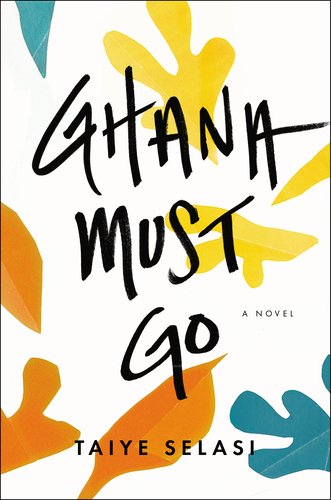
Ghana Must Go
. By Taiye Selasi. Penguin Press; 318 pages; $25.95. Viking; £14.99.
Jane Austen was wrong. It is not weddings that make the best fiction, but funerals. A gifted writer, born in London of Nigerian and Ghanaian descent, makes her debut.
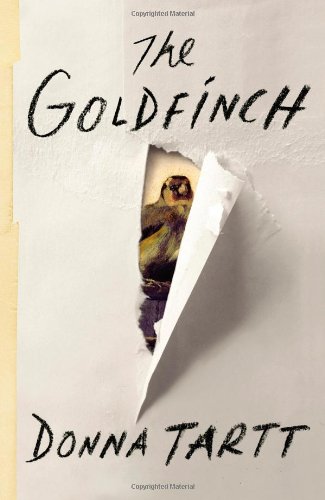
The Goldfinch
. By Donna Tartt. Little, Brown; 784 pages; $30 and £20.
A Victorian tale (complete with an orphan’s moral education and the secrets of a heavy gold ring) fired up with the explosive device of a postmodern thriller. About love and loss, as well as art and its durability, Donna Tartt’s first novel in 11 years is worth the wait.
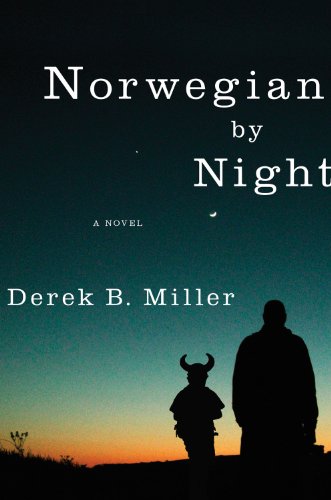
Norwegian by Night
. By Derek Miller. Houghton Mifflin Harcourt; 304 pages; $26. Faber and Faber; £7.99.
Not many authors succeed in being funny about dementia. This unusual thriller, with its memorable octogenarian hero, introduces a bold new voice in fiction that deserves to become better known.
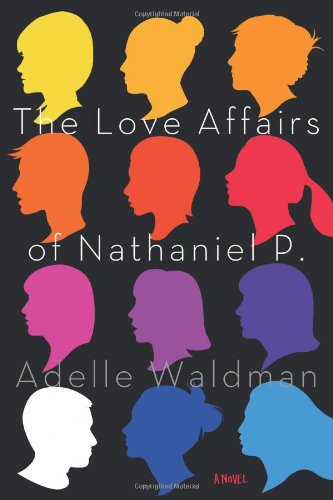
The Love Affairs of Nathaniel P.
By Adelle Waldman. Henry Holt; 256 pages; $25. William Heinemann; £14.99.
An incisive and very funny fiction debut about love, ambition and misbehaviour in Brooklyn, New York. The eponymous Nate—armed with a book deal and a full head of hair—is a proper 21st-century scoundrel. But in Adelle Waldman’s hands he is both fascinating and sympathetic.
– The Economist .
文章版权归原作者所有。
